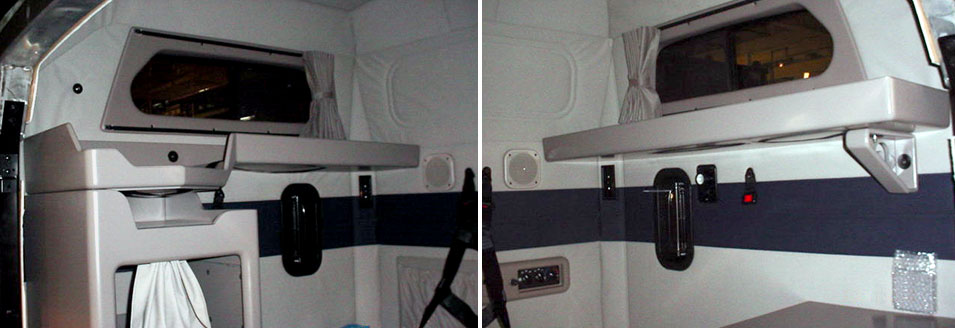RIM Polyurethane
RMC molds a wide range of transportation products using two distinct RIM Polyurethane (PU) technologies:
Bayer BAYFLEX® RIM Polyurethane. An elastomeric-polyurethane, it produces a solid, molded urethane elastomer ideal for the commercial transportation industry. Bayflex elastomeric RIM systems exhibit high impact resistance and flexibility, even in extremely cold environments.
BASF Elastolit® is a rigid integral, microcellular foam/elastomer. Its most important characteristics are low weight, enormously robust, high impact strength, distinctive rigidity, boundless design freedom, high surface quality, good printability, excellent temperature resistance, optimum flow properties, and easy processing.
Process Description:
Two liquid components – an isocyanate “A” and a polyol “B” - are conditioned in holding tanks to the correct temperatures (approximately 100⁰F), pressures, and specific gravities. A dispensing unit continuously circulates the components at low pressures, keeping them uniformly conditioned. During the injection process, the dispensing pump injects A and B components into a closed mold via a mix head, which ensures the complete impingement mixing of the two liquids. Upon contact, a chemical reaction is immediately initiated, creating pressure within the mold in the range of 25-50psi pushing the liquid polyurethane into all parts of the mold cavity within 5 to 35 seconds. The reaction also creates exothermic heat in the range of 250⁰ to 350°F.
Tooling:
Production molds are typically CNC-machined aluminum. Machined aluminum molds are better suited to parts having shallow geometry due to machining costs and wasted material.
Prototyping:
RMC has developed a proprietary process for molding up to 10 prototype parts in PU.

